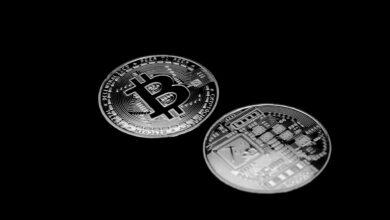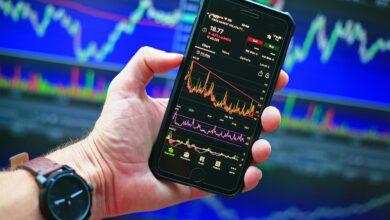Mobile or Desktop – The Best Crypto Trading Choice

In the rapidly evolving landscape of cryptocurrency trading, the choice between mobile and desktop platforms is not merely a matter of convenience; it is a decision that can significantly influence one’s trading experience and outcomes. As digital currencies gain traction, traders are increasingly faced with the question of whether to engage with their investments via a handheld device or a more traditional computer setup. Each platform offers unique advantages and challenges, making the process of selecting the ideal one a nuanced endeavor.
On one hand, mobile trading allows for unparalleled flexibility and accessibility. The allure of managing your crypto portfolio on-the-go cannot be overstated–traders can respond to market fluctuations instantaneously, seizing opportunities as they arise. This immediacy is particularly appealing in a realm where every second counts, and the volatility of cryptocurrencies demands rapid decision-making. However, as we delve deeper into this comparison, it becomes evident that mobile platforms also come with limitations that may hinder a trader’s ability to perform comprehensive analyses.
Conversely, desktop platforms offer a robust environment for detailed research and strategic planning. The expansive screen real estate allows traders to utilize multiple charts, indicators, and tools simultaneously, thereby enhancing both analysis and execution capabilities. For those who favor meticulous scrutiny over rapid transactions, desktop trading may represent the optimal choice. Yet, it is essential to recognize that this conventional approach may lack the immediacy that many traders desire in today’s fast-paced digital economy.
As we embark on this exploration of mobile versus desktop trading platforms for cryptocurrencies, we will dissect these two modalities with an analytical lens. By considering factors such as user experience, functionality, and practical application in real-world scenarios, we aim to furnish you with insights that facilitate an informed decision on selecting the best platform for your trading needs. Whether you lean towards the dynamism of a smartphone or the stability of a computer, understanding the strengths and weaknesses inherent in each option is crucial as you navigate your journey in the intricate world of digital currency trading.
Mobile vs Desktop Trading Platforms: Choosing the Right Approach for Cryptocurrency Trading
In the rapidly evolving world of cryptocurrency trading, the choice between mobile and desktop platforms has become a critical decision for traders. Each option presents unique advantages and drawbacks that can influence trading strategies and outcomes. While the allure of handheld devices such as smartphones offers convenience and mobility, the capabilities of desktop computers cannot be understated. Understanding the nuances of these platforms is essential for anyone serious about engaging in digital currency trading.
When considering whether to trade on a smartphone or a computer, one must evaluate the functionality each platform provides. Desktop platforms often boast advanced features, including comprehensive charting tools, multiple screen setups, and sophisticated trading algorithms. These functionalities are crucial for day traders who rely on real-time data and in-depth analysis to make informed decisions. Conversely, mobile platforms excel in their accessibility, allowing traders to monitor markets and execute trades on-the-go, making them ideal for those who require flexibility in their trading routine.
Selecting the optimal platform for cryptocurrency trading also involves examining user experience. On desktops, traders can benefit from larger screens that facilitate multitasking and detailed analysis. The tactile feedback of a keyboard can enhance the precision of trades as well. However, mobile applications have made significant strides in usability, often incorporating intuitive designs that cater to quick trades and notifications. This user-oriented approach is especially beneficial during times of high volatility when rapid responses are essential.
In terms of security, both platforms present distinct challenges. Desktop computers can offer robust security measures through firewalls and antivirus software, but they also pose risks if not properly maintained. On the other hand, while mobile devices may be more vulnerable to theft or loss, many applications now incorporate advanced security features like biometric authentication or two-factor verification. Thus, the decision should also factor in how traders prioritize security versus convenience.
Moreover, traders should consider their individual trading styles when deciding between desktop and mobile platforms. For instance, those engaged in scalping or high-frequency trading may find desktop options more advantageous due to their superior analytical capabilities and enhanced speed. Meanwhile, long-term investors might prefer mobile applications for their ability to stay updated with market trends without being tethered to a desk.
Ultimately, the choice between handheld versus PC platforms for cryptocurrency trading hinges on personal preferences and specific trading needs. As the landscape of digital currency continues to evolve, so too do the tools available for traders. Therefore, it is imperative to assess all variables–including ease of use, functionality, security, and personal trading habits–before committing to either a mobile or desktop platform. The right choice can significantly influence a trader’s success in navigating the complex world of cryptocurrencies.
Benefits of Mobile Trading: A Comprehensive Analysis
In the rapidly evolving landscape of cryptocurrency trading, the choice between mobile and desktop platforms is pivotal. The advent of smartphones has revolutionized the way traders engage with digital currency markets. With mobile trading, users gain unparalleled accessibility, allowing them to monitor market trends and execute trades on the go. This flexibility can be particularly advantageous for those who need to react swiftly to market fluctuations, as cryptocurrencies are known for their volatility. Thus, selecting a mobile platform becomes not merely about convenience but about capitalizing on time-sensitive opportunities.
When deciding between mobile versus desktop platforms for cryptocurrency trading, one must consider the unique strengths each offers. Desktop platforms typically provide a more robust interface, with advanced charting tools and analytical features that cater to seasoned traders. On the other hand, handheld devices present a streamlined experience that enables quick transactions and real-time notifications. This dichotomy raises an essential question: which platform is optimal for your trading style? While desktops may appeal to those who value comprehensive analysis, smartphones excel in facilitating immediate actions in response to market movements.
Smartphones have become indispensable tools for modern traders, offering not just mobility but also a range of applications designed specifically for crypto trading. These apps often integrate features such as price alerts, news updates, and social trading capabilities that enhance user engagement. Moreover, many platforms now prioritize security on mobile devices, implementing biometric authentication and encryption protocols that safeguard digital assets. Consequently, picking a smartphone-based platform can be both a practical and secure choice for many traders navigating the complexities of cryptocurrency markets.
However, it is essential to recognize the limitations of mobile trading compared to desktop alternatives. While handheld devices are increasingly powerful, they often lack the processing capability and screen real estate that a computer provides. For traders who rely heavily on technical indicators and detailed data analysis, using a PC might be preferable. The larger display allows for simultaneous monitoring of multiple charts and tools, enabling a more comprehensive overview of market conditions–a crucial aspect when making informed trading decisions.
In contrast, the mobile experience thrives on immediacy and simplicity. Many traders appreciate the ability to execute trades swiftly while commuting or during breaks at work. Additionally, the gamification aspects embedded within some trading apps can make the process more engaging, attracting younger demographics who may be new to cryptocurrency trading. Thus, when selecting a platform, it is vital to weigh personal preferences alongside functional capabilities–are you looking for depth or speed in your trading approach?
Ultimately, the decision between mobile or desktop platforms hinges on individual trading styles and needs. Each medium presents distinct advantages that cater to different types of traders–from those who prioritize intricate analysis to those who thrive on quick decision-making in dynamic environments. By carefully considering these factors and understanding the nuances involved in each platform’s functionality, traders can make an informed choice that aligns with their objectives in the ever-changing world of cryptocurrency trading.
Advantages of Desktop Trading
When deciding on the optimal platform for cryptocurrency trading, the debate between mobile and desktop comes to the forefront. Desktop trading offers distinct advantages that cater to serious traders seeking a comprehensive analysis and execution environment. The larger screen real estate of a computer allows for the simultaneous monitoring of multiple charts and data feeds, enabling traders to make informed decisions more efficiently. This is particularly crucial in the volatile world of crypto, where every second counts.
Moreover, desktop platforms often come equipped with advanced trading tools and features that are not as readily available on mobile applications. These include in-depth technical analysis indicators, extensive charting capabilities, and the ability to execute complex trading strategies with ease. For instance, a trader using a PC can quickly set up automated trading bots or algorithms that require a level of computational power and multitasking that handheld devices simply cannot provide. This enhanced functionality makes desktop trading an ideal choice for those who prioritize precision and depth in their trading approach.
Another critical aspect to consider when selecting between mobile versus desktop platforms is security. Desktop trading environments typically offer a higher level of security compared to mobile apps, which may be more susceptible to hacking or phishing attacks due to their connectivity features. By using a computer for trading, individuals can leverage robust antivirus software and firewalls, making it harder for malicious actors to compromise their accounts. Consequently, the safety of one’s digital assets is significantly improved when choosing a computer over a smartphone.
In conclusion, while mobile platforms have their place in providing convenience and accessibility for quick trades on the go, they often fall short when it comes to the depth of analysis, security, and functionality required for serious cryptocurrency trading. Therefore, when picking between handheld devices and computers, it becomes apparent that desktop platforms present themselves as the best option for those looking to engage deeply with the complexities of digital currency markets. Thus, making an informed decision about how you trade can greatly influence your success in this fast-evolving landscape.
Key Features to Consider: Mobile vs Desktop in Cryptocurrency Trading
In the rapidly evolving landscape of cryptocurrency trading, the choice between mobile and desktop platforms is pivotal for traders aiming to optimize their experience. When selecting the ideal platform, one must consider several key features that influence both accessibility and functionality. The primary distinction lies in the user interface and ease of navigation; while mobile applications offer the convenience of trading on-the-go, desktop platforms typically provide a more comprehensive array of tools and analytics necessary for in-depth market analysis.
Another critical factor in this decision-making process is the performance capabilities of each platform. Desktop computers, with their superior processing power and larger screens, can handle complex trading strategies and high-frequency trading more efficiently than handheld devices. This is particularly important for seasoned traders who rely on real-time data analysis and multitasking across various applications. In contrast, smartphones are designed for quick trades and alerts, making them suitable for casual investors or those who prefer a streamlined approach to cryptocurrency trading.
Security is an ever-pressing concern in the digital currency realm. Desktop environments often allow for enhanced security measures, such as hardware wallets and advanced encryption protocols. Traders using a PC can take advantage of software solutions that offer robust protection against hacking attempts. However, mobile platforms are also increasingly adopting security features like biometric logins and two-factor authentication, which provide an additional layer of safety for users who prioritize convenience without sacrificing protection.
When it comes to selecting the best platform for cryptocurrency trading, one must also consider the availability of features specific to each medium. Desktop trading platforms frequently offer extensive charting tools, customizable dashboards, and access to multiple exchanges all within one interface. Conversely, mobile applications focus on essential functionalities that cater to urgent trading needs–notifications about price changes or market movements can be delivered instantaneously, enabling traders to act quickly without being tethered to their computers.
Moreover, understanding your personal trading style is crucial when deciding between mobile or desktop platforms. If you find yourself executing trades in rapid succession during peak market hours, a PC may serve as the optimal choice due to its performance capabilities and extensive analytical tools. However, if your trading activities are more sporadic and you value flexibility, a smartphone could be a better fit, allowing you to manage your investments from virtually anywhere.
Ultimately, the decision between mobile and desktop platforms boils down to individual preferences and trading requirements. Whether opting for the immediacy of a handheld device or the comprehensive nature of a desktop computer, traders must weigh the pros and cons of each option carefully. By considering factors such as performance, security, feature availability, and personal trading habits, one can make an informed choice that aligns with their goals in the dynamic world of cryptocurrency trading.





